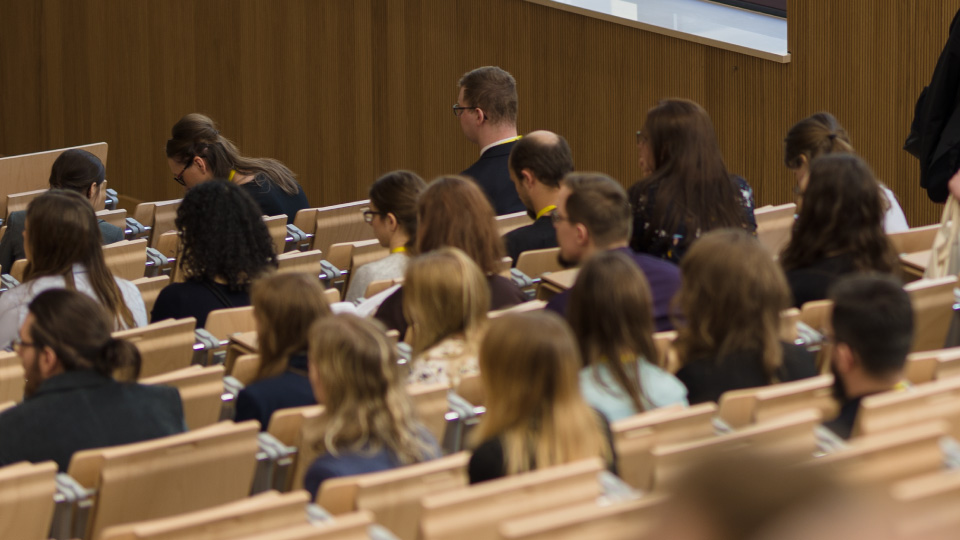

Date: 8 May 2025
Time: 9am-4pm (GMT+1)
Form of training: online.
Multiple brain organoid and spheroid protocols have been described in the last 10 years. Although all retain the intrinsic properties of human brain development, differences rises in the recapitulation of multiple cell types and pace of whole organoid maturation. Often, organoids show regional heterochronicity needing to adapt or select the most suitable conditions for each experimental step. In this course we will revisit the multiple protocols highlighting the advantages and disadvantages in the context of human brain development in health and disease. We will highlight the multiple readouts and organoid based analysis and its pros- and cons-
The course will directed to experimental researchers with solid experience in neuroscience and iPSC/ESC derived models that want to incorporate brain organoid models in their research pipeline.
Main points of the training plan
- Differentiation protocols available.
- Maturation requirements: tips and tricks.
- Microscopy analysis: histology and functional live microscopy.
- Molecular analysis: RNAseq, scRNAseq, ATAC-seq.
Sandra Acosta, PhD, Assistant Professor about herself:
As a scientist, I have a long trajectory in the fields of iPSC/ESC-derived brain organoids and genetic and neurodevelopmental disease modeling. I am Serra-Hunter Fellow and Assistant Professor at Department of Pathology and Experimental Therapeutics, University of Barcelona (April 2021). Throughout my career, I tackled questions related to the development of the central nervous system implementing in vitro and in vivo models of brain development in health and disease. Briefly, during my PhD, I got the chance to receive an early introduction and work with culture of 3D tumoroids (then called Neurospheres). Next, I expanded my international profile during two postdoctoral fellowships in the lab of Prof. Pierre Vanderhaeghen in Brussels (2009-2013) and Prof. Oliver at Northwestern University in Chicago (2014- 2018).
My lab is centered in understanding central questions of human brain development in health and disease. To this purpose, we tackle our questions from a multidisciplinary perspective. This approach lead us to developing several tools, from a genomics and technological AI perspective, and to contribute to the pathogenesis associated to developmental epilepsy, Alzheimer disease, as well as to understand how the human-most brain traits arise evolutionary.


All you need to attend an event using the ClickMeeting platform is internet access and a current web browser (Chrome, Opera, Firefox, Edge). It is recommended to use a computer with a 4-threaded processor, min. 8 GB of RAM and a current Windows 8.1, Windows 10 or Windows 11 operating system. In practice, however, any hardware that performs office tasks smoothly will suffice. The streaming platform also runs on Apple operating systems and Linux distributions, including – Android and ChromeOS.
For our part, we provide technical assistance with configuration, as well as support from platform representatives.
Presentations can have a maximum of 3 authors. It is possible to deviate from the limitation of the maximum number of authors, but after prior notification by e-mail to >>show e-mail<< and obtain explicit approval from the Organizing Committee.
How to prepare a scientific poster?
If you are presenting a poster, please prepare it only in electronic form in horizontal orientation or as a short presentation (2-4 slides).
The paper should be sent to email address >>show email<< in a document with extension „*.pptx” (Microsoft Office 2007 or later) and „*.pdf” by (…), 2022. This will ensure that the post is read correctly. The document with the presentation should be named according to the formula „Last name and First name, first 3 words of the title of the speech”.
Scientific posters can have a maximum of 3 authors. It is possible to deviate from the limitation of the maximum number of authors, however, after prior notification by e-mail to >>show e-mail<< and obtaining explicit approval from the Organizing Committee.
Additional information
Those participating remotely, will have the opportunity to listen live to all speeches during the Conference. They will be able to deliver their paper via the online platform. Participants will be emailed a link to the event no later than the day of the Conference.
Event venue and remote participation
Remote participants will be emailed a link to the online platform no later than the day of the event. All sessions will be streamed live. For this, we will use a platform that will allow contact between Participants gathered in the room and those present remotely. The platform will live stream the event from the conference room or presentations given remotely, allowing two-way contact.
Please register your participation by 30 April 2025 using the form -> LINK
The Training Regulations are available here -> LINK
Registration -> click here
Regulations -> click here

Foundation for the promotion of science and development „TYGIEL”
e-mail: ......@tygiel-international.com
ul. Głowackiego 35/348, 20-060 Lublin
VAT no PL946-26-49-975 REGON: 061730828 KRS: 0000524667
PLN account: PL70 1140 2004 0000 3102 7533 8307
EUR account: PL02 1140 2004 0000 3312 1237 8057
USD account: PL08 1140 2004 0000 3712 1253 7124
BIC/SWIFT: BREXPLPWMBK Bank name: mBank